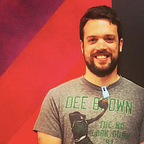Screensavers, ADHD and Entrepreneurship
What kind of learner is my 4-year-old? What kind is my almost 2-year-old?
If things are hard for them in school- if there is something they do not understand, or they have any trouble, how will they get the help they need?
How do they learn to be resilient without feeling depressed and anxious that they are not keeping up with their peers?
I started to think more about this as my kids enter a school system that has not changed enough since it was created to get kids ready to work in the factories.
My memories of school are filled with anxiety, feelings of worthlessness, and some slight glimmers of hope, and perseverance.
I had a lot of speech issues. Hard for me to say “R” and “L”, and I started with three languages, and could barely speak one.
Math word problems were almost impossible. Reading comprehension even more difficult. I stared at clocks in middle school buildings more than most, hopelessly waiting for the bell to ring.
Sometime in middle school, my science teacher asked for a meeting with my parents. He was worried about me.
“I look out and Nathan is staring off into space, or gets lost looking at the screensavers.”
Remember those Mac 1997 screensavers with the lines moving around the screen?
“I am worried he is on drugs.”
I do not remember exactly how my parents answered. I was not on drugs. At least at that time.
If I had to listen to a teacher talk for forty minutes and was not engaged, I would space out. And if a teacher happened to notice, it had to be a narcotic, they thought.
I made the Varsity Basketball team in Middle School but rode the pine. In one game, the coach looked down the bench, a little bit further down the row of gangly boys than he usually did, and called, “Nathan! Get in there!” He said it again because I was staring off into space this time too.
I went in, grabbed the rebound, and laid it right back up, and it went in. Nice, 2 points! I relaxed and ran back to defend. But oh wait, that was the other team's hoop. I scored on our own team. Back to the bench, I went, to space out even more.
High School was more of this. While many of the teachers mostly ignored me, at best, and insulted me, at worse, there were some exceptions. There was a teacher in ninth grade who spent extra time helping me craft a better essay, and in my junior year, I created an independent study with another teacher to research how students learn at different high schools.
By the fall of my senior year, I was restless, irritable, and diving deeper into depression. My SAT scores were awful, and while my peers were applying to elite schools around the country, I was just hoping my state university would accept me. My parents advocated for me to be able to finish high school early and take a few history classes at Suffolk University. I thrived. I took the T every morning, listened to a subject I was very interested in, diligently took notes, and then returned to my high school to run track.
I am writing these stories because I recently read Adult ADHD by Thom Hartman, and there is an almost word-for-word similar anecdote in his book to the ones I mentioned above. Many of the people who turned into entrepreneurs had very similar experiences. Learning disabilities, inability to focus, staring off to space, irritability, sense of dread, anxiety, ability to make connections that others do not, creativity, grit.
Most of our education system and society are built for what he calls farmers, but many entrepreneurs who struggle in traditional schools but thrive in solving problems, and creating businesses, are what he calls hunters. The job requires a different set of skills, and there can be long stretches of aimlessness, and then hyper-focus. He writes, “Adults with ADHD are 300% more likely to start their own companies. There is a thrill of the hunt to start something new.”
When a system does not work for you, you have to adapt. I used to say that going to a big college made me an entrepreneur, you had to figure out how to get into the class you wanted, navigate the bureaucracy, etc. But now I attribute it more to struggling in school from the beginning, and knowing that “traditional” paths would not work for me. There was no other option but to figure out how to make it as an entrepreneur.
Part of entrepreneurship is learning from mistakes and trying to not make the same costly error twice. When I think back on my school system, I do not feel good nostalgia. It reminds me of being lonely and lost.
And I do not want that same feeling for my kids. I want them to know struggle and perseverance, without the feelings of despair. I want them to be comfortable in their own skin, and to know there are many paths to success.
It has been two decades of re-learning about my strengths, after the education system withered them down, and wrestling with my weaknesses, and with the added perspective of what ADHD can look like in adults, I can continue to find ways to iterate and improve. And that’s the best lesson for business too.
